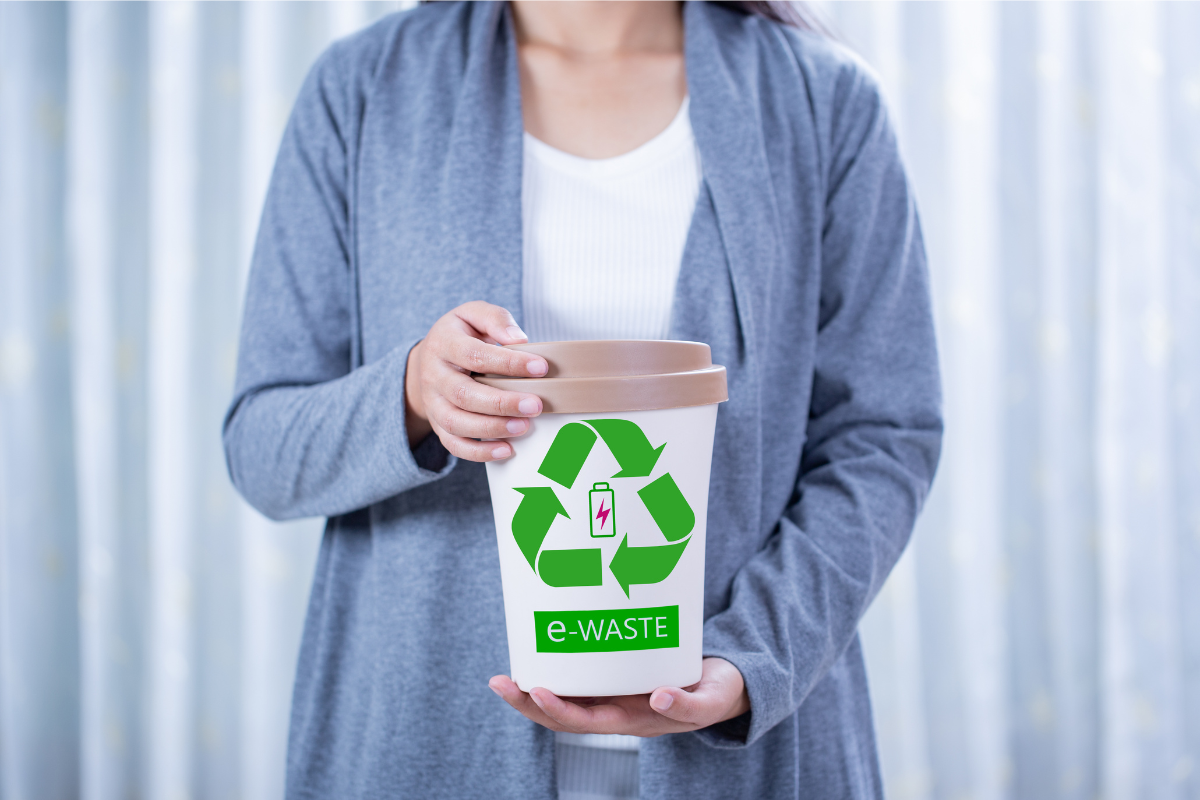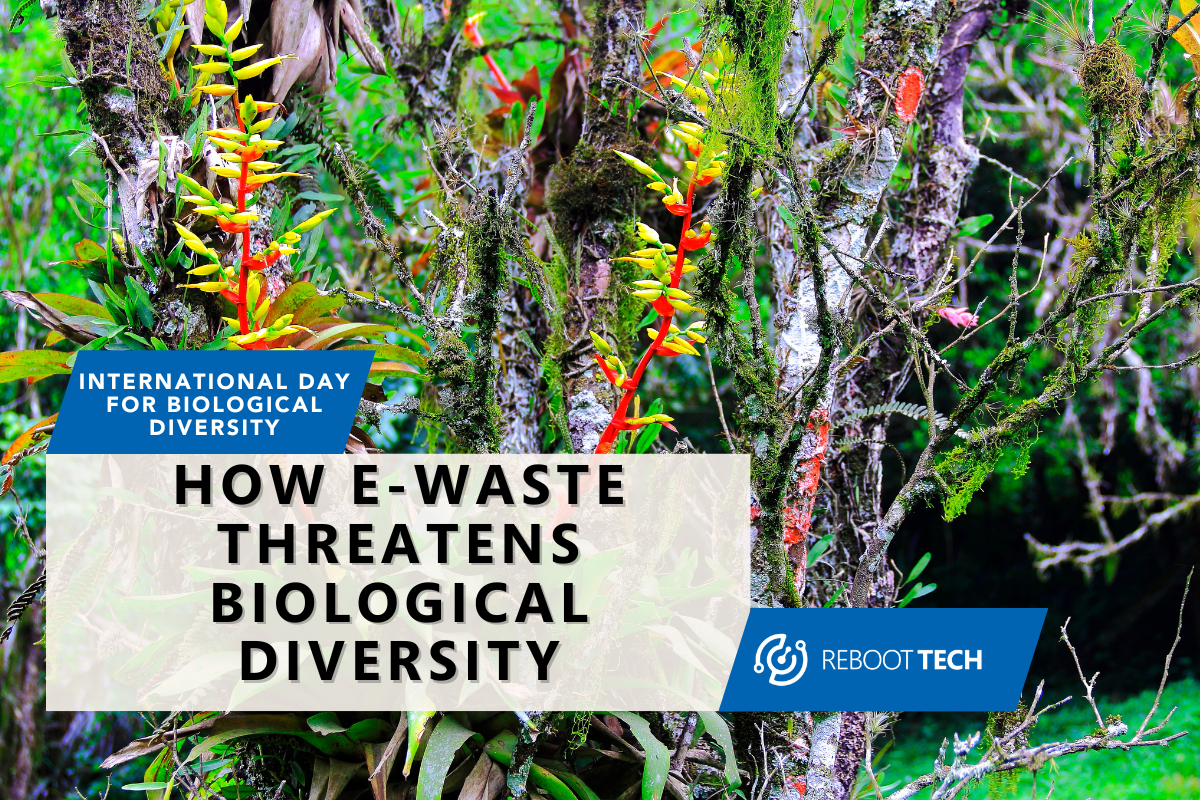
Combatting E-Waste on International Day for Biological Diversity
In our modern digital age, electronic devices have become indispensable tools in our daily lives. From smartphones and laptops to televisions and household appliances, our reliance on electronic gadgets continues to grow.
However, as technology advances and consumer demand for the latest devices increases, so does the problem of electronic waste, or e-waste. Many people don’t know it, but the disposal of these electronic devices creates a massive threat to the biological diversity in our ecosystems.
What is International Day for Biological Diversity?
The United Nations picked May 22 as The International Day for Biological Diversity (IDB) to make more people aware of biodiversity issues worldwide. It was first set on December 29 to match when the Convention on Biological Diversity started, but later moved to May 22 to remember when the Convention’s text was adopted in 1992. This change made it easier for more countries to join in events and projects about conserving biodiversity.
Understanding E-Waste
E-waste refers to discarded electronic devices. These can range from mobile phones and computers to refrigerators and televisions. Basically, any used electronic would be considered e-waste and can be recycled. Electronic waste is growing at an alarming rate and it is now the fastest growing waste stream on the planet.
As consumers continue to upgrade their electronic devices more and more, e-waste grows as well. Improper disposal methods of this solid waste stream include incineration and throwing it away in a landfill. When this happens, toxic substances are released such as lead, mercury, and cadmium into the environment. This contaminates soil, water sources, and the air we breathe, harming both the environment and human health.
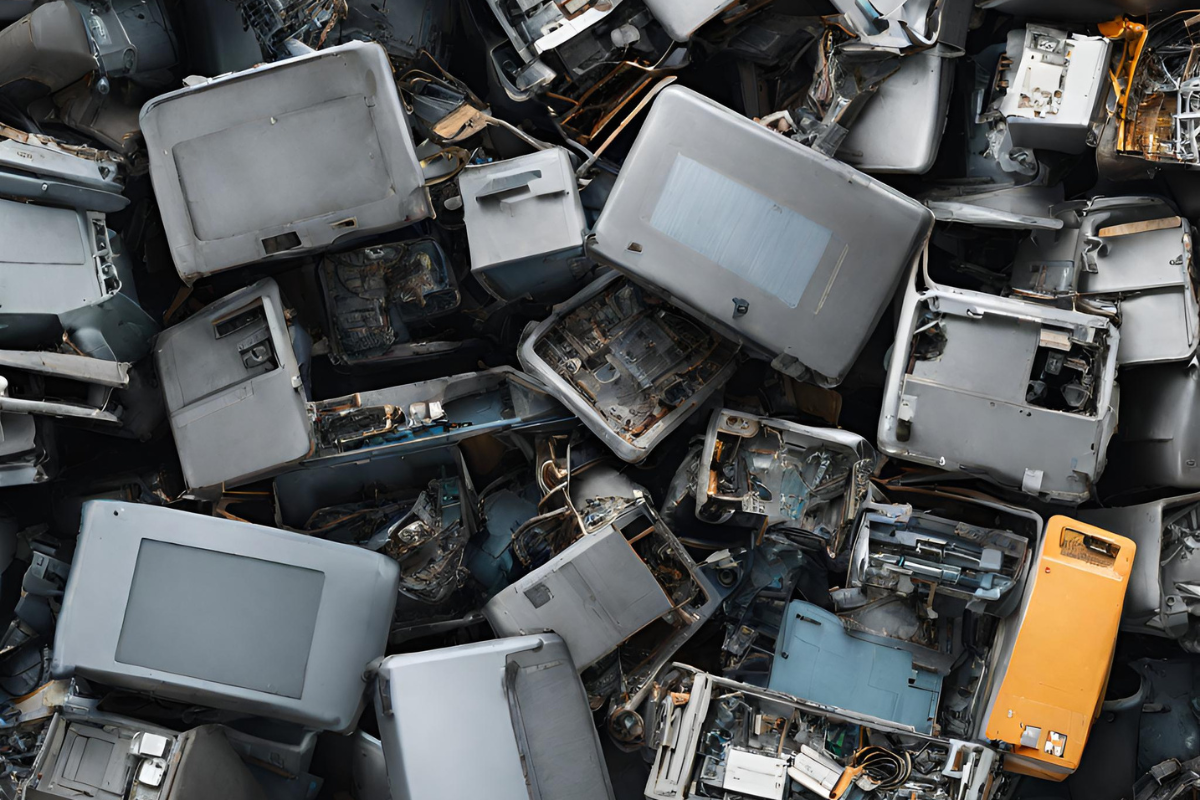
Significance of Biological Diversity
Biological diversity, or biodiversity, means the different types of life on Earth, including different species, genes, and ecosystems. It’s important because all living things, from tiny creatures to big forests, help keep the environment healthy and strong.
Biodiversity gives us important things like pollination, recycling nutrients, and controlling the climate. These things are necessary for people to stay healthy and alive.
E-Waste’s Impact on Biological Diversity
Electronic waste, or e-waste, has a big effect on the variety of life on Earth, called biodiversity. One example is how e-waste can harm animals like birds and fish. When old electronics are thrown away, harmful chemicals can leak out and pollute the water and soil. This pollution can hurt animals living in those areas and even make them sick.
Another way e-waste affects biodiversity is by destroying habitats. For example, when people dump old computers or phones in forests or rivers, it can damage the places where animals live and breed. This disruption can lead to a decrease in the number of different species in those areas, which can upset the balance of the ecosystem.
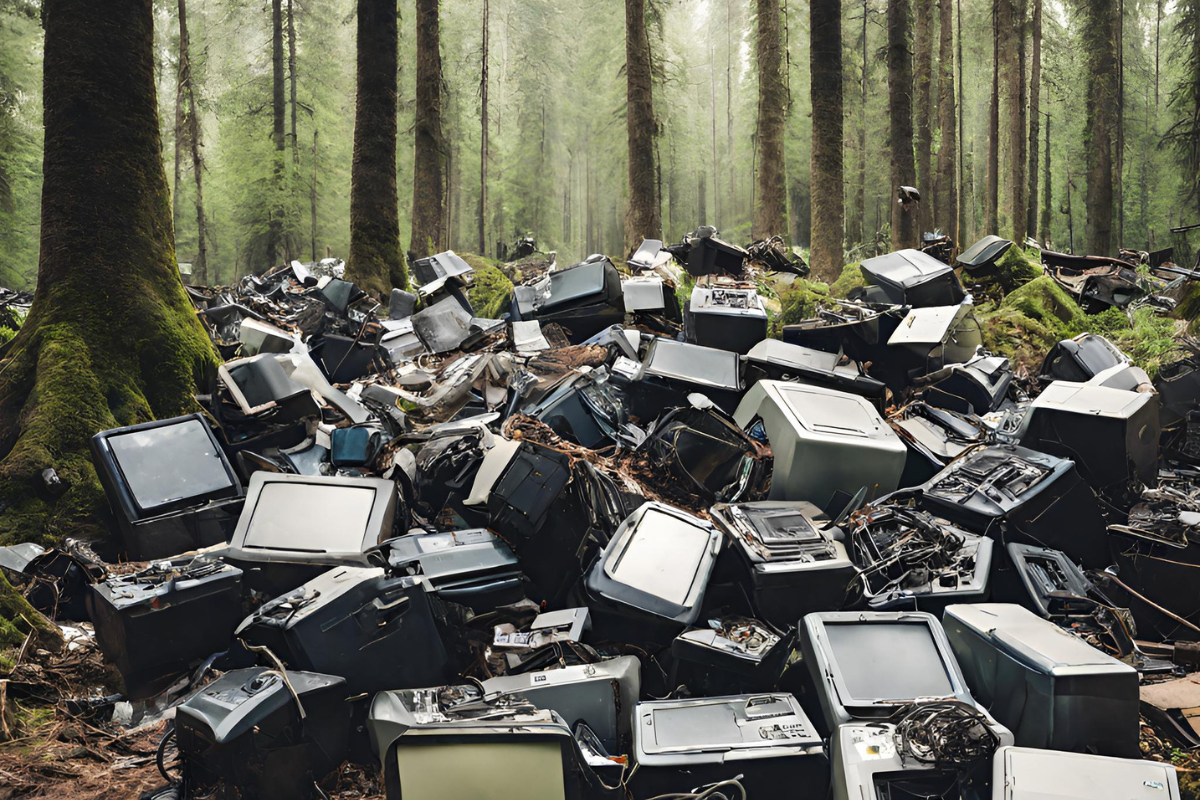
Additionally, e-waste can harm plants and insects, which are important parts of biodiversity. Toxic chemicals from old electronics can seep into the soil and water, affecting the health of plants and insects. As a result, the food chain can be disrupted, leading to a decline in the populations of various plants and animals. Overall, e-waste poses a significant threat to biological diversity and the delicate balance of ecosystems worldwide.
Case Studies and Examples
Numerous case studies and research projects have documented the detrimental effects of e-waste on biological diversity. For example, studies in electronic waste recycling hubs like Agbogbloshie, Ghana, and Guiyu, China, have revealed elevated levels of heavy metals in soil, water, and air, resulting in adverse health effects for local residents and wildlife.
A study done by the American Chemistry Council showed that a quarter of e-waste ends up in seven countries. Those seven countries include China, India, Nigeria, Ghana, Ivory Coast, Benin and Liberia. Many of these places produce too many electronics and don’t have proper management.
The others simply serve as dumping grounds, where the electronics come from some other part of the world. Many thirld world countries have no way to dispose of them after e-waste gets dumped onto their land, and many people fall ill, or even die. Additionally, incidents of e-waste dumping in sensitive ecosystems, such as coral reefs and mangrove forests, have led to habitat degradation and loss of biodiversity.

Mitigation Strategies
Addressing the e-waste threat to biological diversity requires a lot of attention. Many of these approaches are not easy, but they include involving government regulations, industry initiatives, and individual actions. Electronic Recycling and proper disposal of electronic devices can reduce the environmental impact of e-waste and prevent hazardous substances from entering ecosystems.
Public awareness campaigns and educational programs can promote responsible consumerism and encourage sustainable electronic product design. Once these practices become more common, the goal would be to push these initiatives to a larger scale.
Reboot Tech’s Services
Reboot Tech offers a range of services aimed at addressing the e-waste crisis and promoting environmental sustainability. Our e-waste recycling program ensures that electronic devices are responsibly disposed of, preventing harmful chemicals from contaminating the environment.
Additionally, we purchase electronic surplus from businesses, giving new life to outdated devices and reducing the need for new manufacturing.
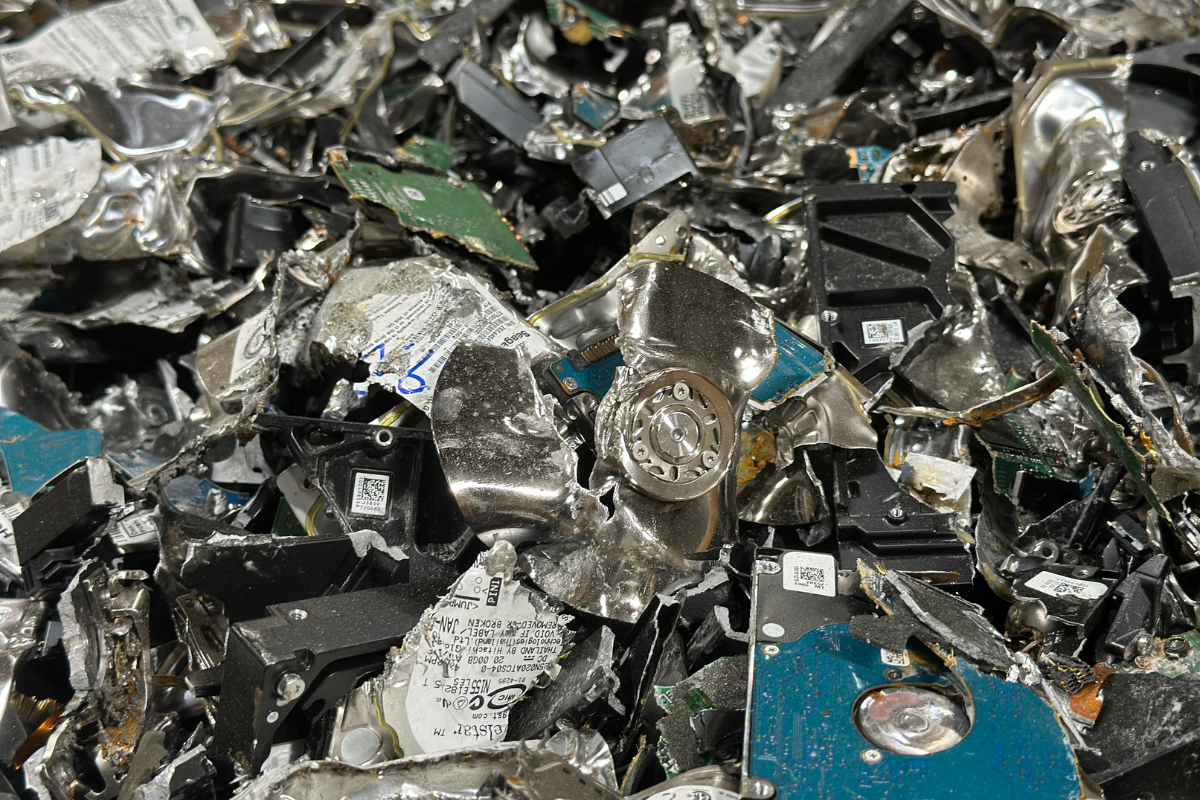
Our data destruction services safeguard sensitive information by securely erasing or destroying data-bearing devices such as hard drives and SSDs. By disposing of electronic waste in compliance with regulatory standards, Reboot Tech helps businesses mitigate the risks of data breaches and protect their confidential information.
Lastly, we also offer IT Asset Disposition (ITAD) services to assist companies in managing the entire lifecycle of their IT assets. From acquisition to disposal, we will take care of all your electronic items in a sustainable way.
How Reboot Tech’s Services Help
Reboot Tech’s comprehensive suite of services plays a crucial role in preventing e-waste and minimizing its impact on biological diversity. By recycling electronic devices, we reduce the need for raw materials extraction and minimize the environmental footprint of electronic manufacturing processes.
Our data destruction services ensure that sensitive information remains secure, preventing potential data breaches that could harm both businesses and the environment.
Through our ITAD services, we help companies responsibly manage their IT assets, prolonging their useful lifespan and reducing the volume of electronic waste generated. By partnering with Reboot Tech, businesses can contribute to the preservation of biological diversity by adopting sustainable practices in their electronic device management.
What You Can Do on This Day to Prevent E-Waste
On International Day for Biological Diversity, people and businesses can help stop e-waste and take care of the environment. You can do things like arranging e-waste collection events or joining community recycling activities to throw away old gadgets the right way.
Learn about why it’s important to manage e-waste properly and how it affects nature. Support companies like Reboot Tech that care about the environment and give good ways to recycle e-waste and manage IT stuff.
When we choose to recycle and speak up for protecting nature, we all help keep different plants and animals safe and make sure the Earth stays healthy for the next generations.
